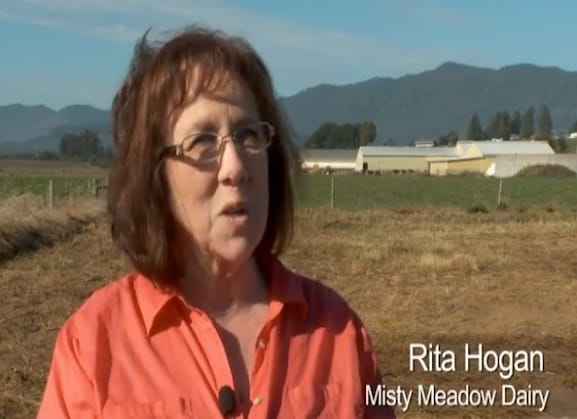Your Smart Energy enrollment helps fund projects that reduce, or prevent the release of, greenhouse gas.
Smart Energy renewable natural gas projects
Smart Energy has purchased renewable thermal certificates (RTCs) from the Wasatch Resource Recovery Facility in Utah that captures and refines the emissions from decomposing food waste. RTCs are retired on participants’ behalf.
Renewable natural gas is derived from biogas, which is produced from decomposing organic waste from landfills, agricultural and forestry waste and wastewater from treatment facilities, that has been captured and cleaned for the pipeline.
For every dekatherm (10 therms) of renewable natural gas produced and used at qualifying facilities, an RTC is created. An RTC represents the environmental attributes of the generation and use of the dekatherm of renewable natural gas, similar to renewable energy certificates for wind and solar electricity generation. RTCs are currently tracked, validated and retired via the Midwest Renewable Energy Tracking System (M-RETS), which ensures the validity and integrity of RTC creation and retirement. For more information on RTCs, please visit the M-RETS Renewable Thermal Tracking System Website.
Smart Energy carbon offset projects
Bear Creek Watershed
Bear Creek Watershed - Astoria, OR
By extending the time between timber rotation, this Forest Stewardship Council-certified watershed forest sequesters atmospheric carbon and helps provide clean drinking water.
B6 Dairy
B6 Dairy - Gooding, ID
Captured methane from the anaerobic digestion of manure at this family farm generates about 1 million kilowatt-hours of renewable electricity every month.
Castelanelli Brothers Dairy
Castelanelli Brothers Dairy - Lodi, CA
This family-owned dairy uses captured methane from diverted manure to generate renewable electricity for the farm.
Davis Landfill
Davis Landfill - Layton, UT
Captured methane is piped to Hill Airforce Base, where it is used to generate renewable electricity.
Farm Power Lynden
Farm Power Lynden - Lynden, WA
Captured methane from an anaerobic digester was used to generate renewable electricity. The resulting heat waste heated commercial greenhouses.
Farm Power Misty Meadow
Farm Power Misty Meadow - Tillamook, OR
This family-owned dairy diverts manure from a 14-million-gallon lagoon to a 1-million-gallon anaerobic digester, where captured methane is used to generate renewable electricity.
Farm Power Rexville
Farm Power Rexville - Mt. Vernon, WA
The digester sits between two dairies and generates electricity with the captured methane from manure and municipal food waste.
Farm Power Tillamook
Farm Power Tillamook - Tillamook, OR
Five family-owned dairy farms pipe manure from about 2,500 cows to a central digester, where captured methane is used to generate renewable electricity.
Great Bear Initiative
Great Bear Forest Carbon Project - British Columbia
The Great Bear Forest Carbon Project works to reduce the number of trees cut in the Rainforest, which helps increase the amount of stored carbon. Coastal First Nations then sells carbon credits that represent these increased volumes, and buyers use the credits to offset their own greenhouse gas emissions.
Lochmead Farms
Lochmead Farms - Junction City, OR
This family-owned dairy turned waste from about 1,100 cows into renewable electricity.
Moses Lake
Moses Lake - Moses Lake, WA
This ENERGY STAR®-rated facility diverts organic waste and potato trim from lagoons to an anaerobic digester. Captured methane is used on-site as a source of renewable natural gas.
Oak Lea Dairy
Oak Lea Dairy - Aumsville, OR
This small family-owned dairy uses captured methane to generate renewable electricity—enough to power about 300 homes in Oregon each year.
Roseburg LFG
Roseburg LFG Energy - Roseburg, OR
This project captures methane emitted from the Roseburg Landfill municipal waste facility. The captured methane is then refined and sent to a 1.6-megawatt energy plant to generate renewable energy.
Shaan Seet
Shaan Seet Improved Forest Management Project - Prince of Wales Island, AK
This project sequesters atmospheric carbon by preventing commercial timber harvesting activities from occurring on this 8,891 acre area of old-growth forest. Owned by Shaan Seet Inc., an Alaska Native Claims Settlement Corporation that provides economic development for the community of Craig (Shaan da) on the west side Prince of Wales Island, this project will also improve wildlife habitat, protect biodiversity, and protect water quality for local fisheries.
TMF Biofuels
TMF Biofuels - Boardman, OR
Captured methane from co-digested organic waste and cow manure generates about 4.8 million megawatts of renewable electricity annually.
Van Warmerdam Dairy
Van Warmerdam Dairy - Galt, CA
Manure from roughly 1,400 cows power a 600 kilowatt-capacity generator, which produces peaking power for Sacramento Municipal Utility District.
Whiteside Dairy
Whiteside Dairy - Rupert, ID
Captured methane heated farm buildings and generated renewable electricity.
Winston Creek
Winston Creek Forest Carbon Project - Lewis County, WA
This project sequesters carbon by extending the rotation time between timber harvests on a 10,088-acre plot of commercial forest. Made up primarily of Douglas fir, the project protects valuable habitat for local wildlife, including the spotted owl and marbled murrelet.

Rita Hogan
Misty Meadow Dairy
How we select carbon offset projects for Smart Energy
We contract with third-party organizations to procure verified carbon offsets on behalf of Smart Energy. Smart Energy has retired carbon offsets on the public registries of several voluntary carbon offset programs. These programs have developed standards for quantifying and verifying GHG emissions reduction projects, overseeing independent third-party verification bodies, minimizing the risk of invalid creation or double counting of Climate Reserve Tonnes (CRTs), issuing carbon credits generated from such projects and tracking the credits over time. Recognized standards from these programs help ensure environmental integrity.
American Carbon Registry (ACR)
Verified Carbon Standard (VCS)
BC Registry
All Smart Energy carbon offset projects meet quality standards and ensure environmental integrity. Projects must:
- Ensure greenhouse gas emission reductions are in addition to business-as-usual activities.
- Apply quantification protocols that generate a conservative volume of emission reductions.
- Be monitored and third-party verified.
We also prefer Smart Energy projects that contribute to sustainable development goals, such as protecting water quality and creating jobs.
Carbon offset project selection criteria
Verified offsets
NW Natural criteria
Carbon offset criteria
